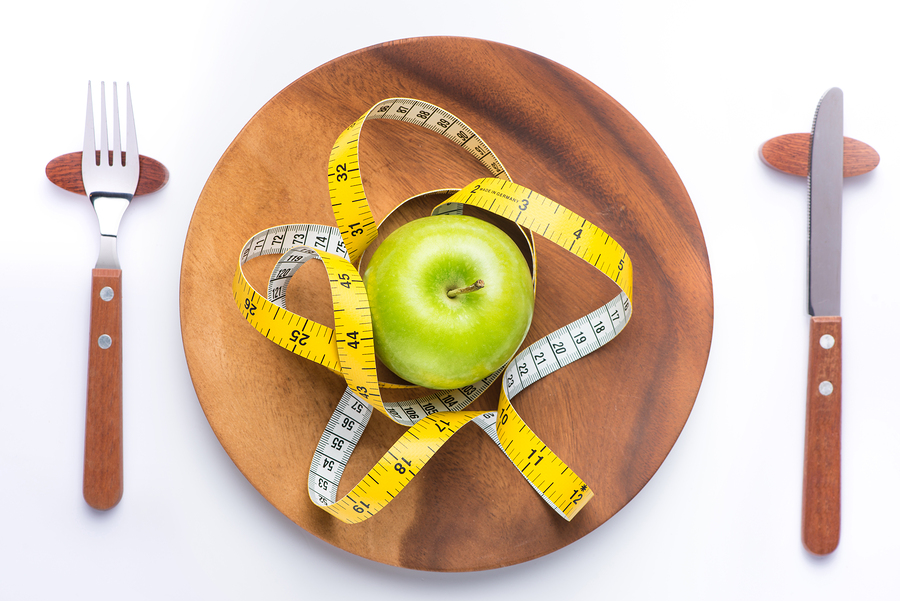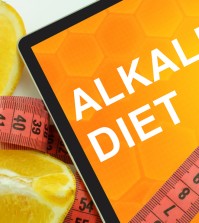- Make It Yourself Lavender Heart-Shaped Bath Bombs!
- 20 Things You Never Knew About “Down There”
- 12 Best Foods For Those Suffering From Arthritis Pain
- 12 Personal Hygiene Mistakes Almost Everyone Makes (Mom Never Told You About #4!)
- 15 Medicinal Plants And Herbs From The Cherokee People
- 12 Mind-Blowing Benefits Of Drinking Coconut Water During Pregnancy
- 12 Outstanding Winter Foods That Won’t Fatten You Up Like A Christmas Turkey
Which Weight-Loss Diets Actually Work?

Photo credit: bigstock.com
There is so much confusing and contradictory information regarding weight loss out there. Traditionally, a low-fat diet was thought to be the way to go. Other diets tell you to cut out carbs and focus on proteins. More recently, some diets suggest chowing down on fat and cutting out sugar instead. So what is going on here? What dietary changes are actually linked to weight loss?
In this article, we’ll cut through all the confusion and show you the commonalities among diets that actually work, and how to save yourself from frustration on your path to a healthy weight.
Which diet is best?
The answer is, it depends on the person. There are many proven diets for cutting weight, such as the Paleo diet, the Mediterranean diet, the low carb Atkins diet. There are a series of common traits that the most effective diets for weight loss all have.
They emphasize good foods over calorie restriction. “Eating less” might seem like the most obvious thing to do if you want to lose weight, but what you eat is much more important than taking in fewer calories. Simply taking in less calories is not going to help much if those calories still consist of junk food.
Eating healthy whole foods is the best way to lose weight, and if you eat healthy foods, oftentimes it’s what you cut out rather than add that makes the most difference. Eliminating unhealthy foods can make an enormous difference which leads us to the next few items on the list:
Good diets cut out refined carbs, trans fats, and vegetable oils. These three categories of food items are some of the worst offenders when it comes to contributing to obesity.
Your body needs carbohydrates, but refined carbs cause all kinds of haywire with your health. In these carbs, the endosperm and whole grain are removed by a special process producing a “refined” flour. This contains starch which gives you energy, but very little nutritional value. Refined carbs cause spikes and subsequent crashes in blood sugar levels. Refined carbs can contribute to not only obesity, but diabetes and cardiovascular disease as well.
Continue to Page 2

Photo credit: bigstock.com
Trans fats are a nutritional abomination. These are not naturally occurring fats, but are made by food producers and added to foods to make them last longer. Also known as “hydrogenated” fat, trans fats are produced by adding hydrogen atoms to existing fats. They have been definitively linked to inflammation, obesity, and an increased risk of heart attacks. Trans fats have absolutely no redeeming qualities and are arguably the most unhealthy thing you can possibly eat. Thankfully, public awareness about the dangers of trans fats is spreading. In New York City, legislators went as far as to actually ban trans fats.
Finally, high quality diets also call for cutting out bad vegetables oils, such as canola, peanut, corn, soybean, and cottonseed oil. These oils are loaded with low density lipoprotein (LDL) cholesterol, which increases the risk of heart disease. They are also rich in polyunsaturated omega-6 fatty acids, which the modern diet is already far too heavy in. As a healthy alternative, try using extra virgin olive oil or coconut oil.
Good diets place a strong emphasize on vegetables. All the weight-loss diets which stand up to scientific scrutiny feature vegetables as a core component. All vegetables are beneficial to varying degrees. Rich in vitamins, antioxidants, and fiber, adding veggies, especially cruciferous (leafy green) ones to your diet is just a no-brainer.
An effective weight-loss diet calls for reducing sugar intake.Sugar is arguably the queen mother of unhealthy foods. Added sugars in soft drinks, candies, baked goods, and many other foods can put too much stress on your liver, which then converts the sugar into fat. It is also linked to diabetes. Reducing the amount of sugar you ingest is one of the most crucial steps you can take to shedding unwanted pounds and improving your health.
READ ALSO: Interesting Facts And Numbers About Vegetarian Diets Infographic
Talk to your doctor, and your nutritionist or trainer if you have one, to determine what the proper diet is for you. Everybody has subtle differences in their genetics. Some people will respond better to one diet versus another so it may take some experimentation to find what works for you. Just remember: You are what you eat. Eating great is the first step to looking and feeling great. Good luck.
References:

































